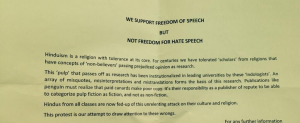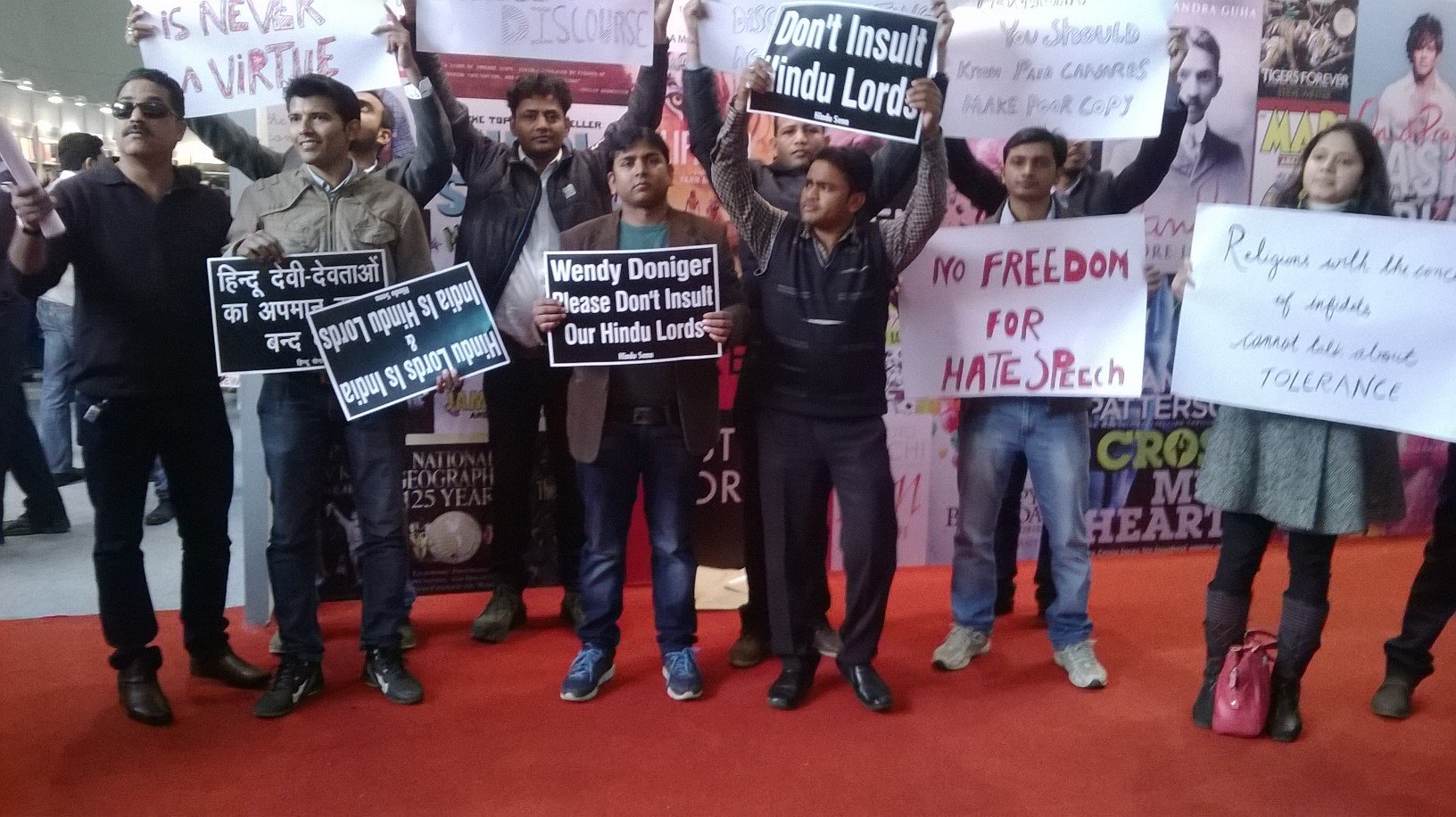In the opening chapter of his Sanskrit masterpiece, the Vikramāṅkadevacarita, Bilhaṇa, a Kashmiri poet living in 12th century Karnataka, writes:
Where is the fame of those kings who do not have eminent poets on either side?
How many kings have come and gone from the earth?
Nobody even knows their names!
The fame of Ravana, the king of Lanka, is now diminished,
while Rama, the son of King Raghu, is a vessel of glory.
All this fame is only owing to Valmiki, that first poet.
Kings should not upset their poets!
(1.25-27)
Bilhaṇa’s point is clear: even Rama, the most honored of Indian kings, could have been portrayed differently by a different poet. He imagines an alternative version of history in which Rama may not have been the greatest king of all, but simply had the greatest poet, which suggests that our vision of the past is distorted by the historical circumstances that surrounded its events. Even (or rather especially) the deeds of the greatest king of all time can (or rather must) be questioned.
The Vikramāṅkadevacarita is not an aberration. It is a beautiful and widely respected work. Indeed, Appayyadīkṣita quotes its verses in the Kuvalayānanda, portraying it literally as the textbook example of specific Sanskrit poetic elements.
And yet, if Bilhaṇa were living today, there is a very real possibility that he would not be able to publish his work in India. On Tuesday, February 11th, Penguin India announced that after four years of legal battles, it would be caving to right wing demands and withdrawing the publication of Professor Wendy Doniger’s book The Hindus: An Alternative History and “pulping” their remaining stock. The lawsuit against the book reads:
21. That YOU NOTICEEs has hurt the religious feelings of millions of Hindus by declaring that Ramayana is a fiction.
“Placing the Ramayan in its historical contexts demonstrates that it is a work of fiction, created by human authors, who lived at various times……….” (P.662)
This breaches section 295A of the Indian Penal Code (IPC).
That is the law that Penguin India cited in its decision to cease publication of the book, saying, “We believe, however, that the Indian Penal Code, and in particular section 295A of that code, will make it increasingly difficult for any Indian publisher to uphold international standards of free expression without deliberately placing itself outside the law.” In India’s current political climate, the law makes serious scholarship of Indian texts virtually impossible.
Do not be fooled by the noise—this is not an attack on Wendy Doniger. This is not an attack on her book The Hindus. This is an attack on all scholarship about India that attempts to take a so-called critical stance. It is an attack on any scholarship attempting to address texts in their own contexts and examine their ideologies. It is not an attack on an over-sexualized view of Hinduism as it claims to be. It is a continuation of the attack that began with protests over AK Ramanujan’s 300 Ramayanas and Paula Richman’s Many Ramayanas.
But this is exactly the type of scholarship that is so sorely needed in India today. Vast swaths of the Sanskrit literary world remain untranslated, under-analyzed, and inaccessible to most people. And the few parts of the Sanskrit world that are somewhat accessible are often used as political rallying points. Those who have some access to the vast corpus of ancient Indian literature (or at least claim to have access) wield it over those who do not.
Since Penguin India’s announcement, the right wing intelligentsia and internet army have been gleefully celebrating the suppression of a scholar’s words. One point made repeatedly is that this is not a violation of free speech. “It was Penguin’s decision to voluntarily withdraw the book in an out-of-court settlement for reasons best known to it. Therefore, raising the din that freedom of expression is under threat by Hindutva forces is off the mark.”
So the argument goes.
But the battle over free speech does not require official state sanctioning. The lawsuit brought against Penguin India is a criminal suit that carries with it the possibility of jail time for the publishers. The prosecutors only face fines, but the defense faces both fines and imprisonment. When the freedom of publishers is weighed so unfairly against the words they publish, free speech ceases to exist.

Those who defend the lawsuit proudly claim that they used the legal system rather than violence to carry out their agenda. But the threat of violence always remains. They declare:
42. That YOU NOTICEEs have wantonly indulged in unlawful act by showing photograph of Hindu God sitting on the lap of a naked woman & surrounded by naked women and thereby have tried to provoke people intending and knowing that it is likely to cause the offense of rioting.
The implication is clear. If we riot, it is your fault. This is not an empty threat—the past fifteen years have left a trail of battered academics and vandalized libraries throughout India. These are the people who would rather see irreplaceable manuscripts of the Rg Veda or the Mahabharata destroyed than be housed in an institution like the Bhandarkar Oriental Institute, an establishment friendly toward western academics. But, of course, this time around, all of this is very civilly carried out in the courts.

In her book Other People’s Myths, Doniger outlines the interperative method she would come to use in The Hindus. (The method is further elaborated in her book The Implied Spider.) She discusses the possibility of using dvesha-bhakti, a Sanskrit term meaning hate-love, in one’s scholarship. Perhaps we can approach religion using both hatred and love of the object we study to gain an impartial view. In the end though, she rejects this approach, hate kills, and as she says, “the enterprise of killing is ultimately boring” (pg. 17). Unfortunately, this is not a message her critics have understood. By hating and silencing Doniger and her scholarship, her critics render themselves into the most painful of all categories: the boring.
The battle over ideas is not over. Doniger has a new publisher and a new book out in India that she considers the summation of her life’s work. It is about to be targeted, and elections are just around the corner.
***
Eric M. Gurevitch is a New York Jew currently residing in Mysore, where he teaches English at a Catholic school and studies Sanskrit texts on Hindu kingship and grammar. One day he hopes to be less confused. He often tweets at @EMGurevitch and occasionally blogs at pilesofbricksinindia.tumblr.com
***
Protest photo taken by Prashansa Taneja. Twitter at https://twitter.com/PrashansaT.

